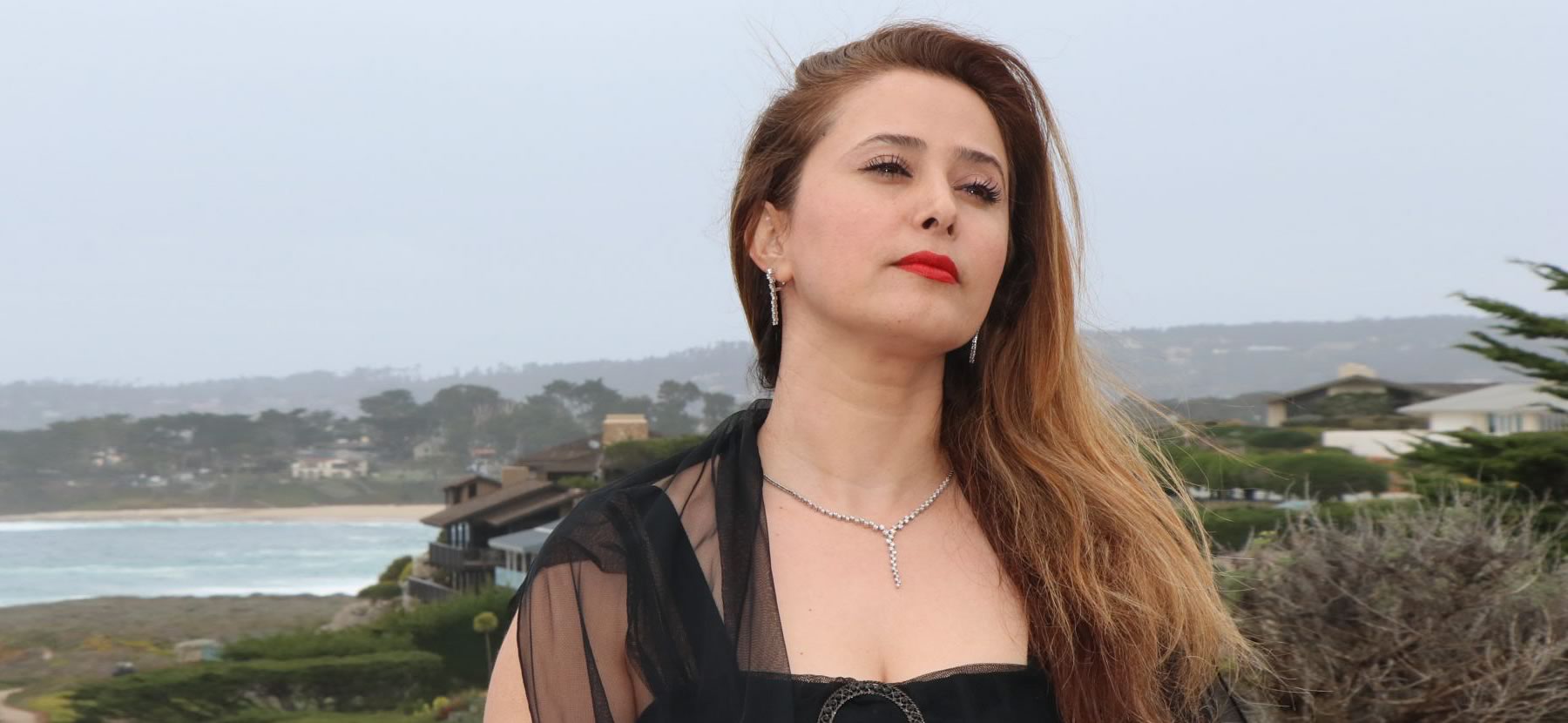Advocacy & Aid

Ava Homa is a journalist, activist, and critically-acclaimed author of “Daughters of Smoke and Fire” (HarperCollins, 2020). She holds an MA in English and Creative Writing from the University of Windsor. Her collection of short stories, “Echoes from the Other Land”, was nominated for the Frank O’Connor International Prize, and she is the inaugural recipient of the PEN Canada-Humber College Writers-In-Exile Scholarship.
Ava Homa is a journalist, activist, and critically-acclaimed author of “Daughters of Smoke and Fire” (HarperCollins, 2020). She holds an MA in English and Creative Writing from the University of Windsor. Her collection of short stories, “Echoes from the Other Land”, was nominated for the Frank O’Connor International Prize, and she is the inaugural recipient of the PEN Canada-Humber College Writers-In-Exile Scholarship.
Pen Canada: In 2017 you were the inaugural PEN Canada-Humber College Writers-in-Exile Scholar. What impact did the program have on your work, and how did it help to advance your career?
Ava Homa: My goal in writing fiction has been to transform pain into art, oppression into resistance, and rejection into fuel. In 2010, I started writing “Daughters of Smoke and Fire”, which weaves together 50 years of modern Kurdish history, while working several part-time jobs. By 2017, I had completed the fifth draft but the road to publication is an uphill battle for most, and so much harder for those who aren’t raised in this culture. Simply winning the opportunity was heartwarming. Then, I enjoyed the mentorship of one of Canada’s finest authors, David Bezmozgis, who read through my manuscript and helped me to improve it. In 2018, I met my agent Chris Kepner who championed my novel and found a home for it. Chelsea Cutchens — whom I call the Godmother of my novel — my editor at Abrams, and Jennifer Lambert of HarperCollins Canada had enough faith in my writing to publish it in May 2020. Although the book came out at the beginning of the pandemic, a highly unfortunate time for a debut novel, I feel humbled and grateful that I’ve received so much acclaim. The Globe and Mail called my book one of the best new fictions of Spring and the Toronto Star published a rave review. UK’s Independent also called “Daughters of Smoke and Fire” one of the best books of May.*
PC: It is clearly your passion to share the suppressed stories of your people in Kurdistan with the world. What do you feel are the most important stories to share and why?
AH: I believe that if we read each other’s stories, we will have an easier time opening our hearts and minds to different groups, especially to the underrepresented ones. This will help us to create healthier, more peaceful, and compassionate societies. To me, any writing that allows suppressed voices and stories to be heard is important, regardless of the subject matter. Oppressors, be it a bigoted president or a totalitarian regime, have this in common: they want the vulnerable to suffer in silence. Thus, finding and raising one’s voice is an act of resistance and therefore political and important. My writing — initially as a secular Kurdish feminist against the fundamental Iranian government, and later as a writer in exile and a first-generation migrant in Canada — has been my attempt at helping to eradicate suppression of the disenfranchised.
PC: The title of your debut novel, “Daughters of Smoke and Fire” seems to allude to a phoenix rising from the ashes. Do you feel this way personally?
AH: Yes. To me, being a Kurdish-Canadian writer is about rebirth and resistance. Kurds have lived a precarious existence throughout history and they will continue to struggle until global policies change. If I do what I know how to do, at the very least, I can show that even in the age of nation-states, stateless Kurds matter and we are as complicated, important, imperfect, funny, and fascinating as any other group of humans. Perhaps if the world is shown the humanity of Kurds through stories, policies will become more humanitarian. If we are reminded of our common humanity — of Kurds, of everyone — we can create global policies that reflect that.
PC: Has writing been a healing process for you? Has it helped to restore a sense of peace, freedom, and home? Do you feel that literature can heal the wounds of your people, as a whole, past, and present?
AH: I believe one of the most important decisions any human makes in their lifetime is deciding which one of three sides to be on. The first group is small and profit-obsessed at absolutely any cost — dictators, arms dealers, corrupt politicians, some corporations. The second group is largely made up of people who accept the status quo and get absorbed by the challenges of their daily life, the struggle with bills and pills. The third group pushes for justice and humanity. They can also imagine the possibility of transformation. Their ideas are often viewed as radical in their own time (suffragists, abolitionists, and more) but they leave tangible effects on the following generations. I have always wanted to be on the side of the writers, artists, intellectuals, scientists, and activists who believe collective humanity deserves better, who fight for something bigger than themselves, who challenge the status quo for a noble cause.
PC: Has it been fulfilling to tell the stories that would otherwise go unheard? What other untold stories are still waiting to be shared?
AH: Fulfilling and difficult. I have interviewed many people who have gone through imprisonment and torture but writing in the first person had me imagine myself in situations like that. Their stories were hard to write, but for as long as many people are alive today who have borne such conditions and have come out of it stronger and more humane, I must write their stories to the best of my ability. But I have included just as many moments of defiance, small and big, in Daughters of Smoke and Fire because little acts of resistance, ingenuity, and courage can change the world.
PC: What are you working on now, and what are your plans for the future?
AH: My plan is to keep writing and reading because literature gives me shelter and purpose. I am working on the third draft of a new novel. It’s a love story that looks at the experience of refugees and the 2014 genocide of Yazidis at the hands of the Islamic State. This book is also a tribute to human resilience.
*The reviews can be found at www.AvaHoma.com.
Subscribe for updates about PEN Canada’s work to defend free expression.
